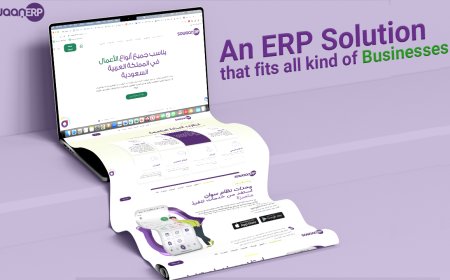How Business Central Partners Enable Compliance with Industry-Specific Regulatory Frameworks
However, the software’s true power in enabling compliance is often unlocked through the expertise of Microsoft Dynamics Business Central Partners.

In todays highly regulated business environment, compliance with industry-specific regulatory frameworks is not just a legal obligation but a vital component of operational integrity and customer trust. For many organizations, particularly small and medium-sized enterprises (SMEs), navigating the complexities of compliance can be a daunting task. This is especially true for companies operating in industries such as manufacturing, healthcare, finance, retail, and distribution, where regulatory requirements are stringent and constantly evolving.
Microsoft Dynamics 365 Business Central is a leading enterprise resource planning (ERP) solution that helps businesses streamline their operations, enhance visibility, and drive growth. However, the softwares true power in enabling compliance is often unlocked through the expertise of Microsoft Dynamics Business Central Partners. These partners play a crucial role in customizing, implementing, and supporting Business Central solutions that align with the unique regulatory demands of various industries.
This article explores how Microsoft Dynamics Business Central partners help businesses achieve and maintain compliance with industry-specific regulatory frameworks, enabling them to operate confidently and efficiently.
Understanding the Compliance Challenge
Regulatory compliance involves adhering to laws, regulations, guidelines, and specifications relevant to a business's operations. Non-compliance can lead to severe penalties, legal consequences, reputational damage, and lost business opportunities. Regulatory frameworks vary widely across industries but generally include requirements related to:
-
Data privacy and security (e.g., GDPR, HIPAA)
-
Financial reporting and auditing standards (e.g., GAAP, IFRS, SOX)
-
Quality control and product safety (e.g., FDA regulations, ISO standards)
-
Environmental regulations (e.g., EPA guidelines)
-
Industry-specific mandates such as anti-money laundering (AML) in finance or controlled substance tracking in healthcare
Meeting these diverse requirements demands a flexible and powerful ERP system that can be adapted to handle regulatory data, automate compliance reporting, and enforce internal controls.
Role of Microsoft Dynamics Business Central
Microsoft Dynamics Business Central provides a unified platform that integrates finance, supply chain, operations, and customer relationship management. The solutions modular design, scalability, and integration capabilities make it an excellent choice for businesses seeking to comply with regulatory frameworks without compromising on agility or innovation.
Key features supporting compliance include:
-
Audit Trails and Data Integrity: Business Central maintains detailed logs of transactions and changes, ensuring accountability and traceability.
-
Role-Based Security: Granular permission controls protect sensitive data and restrict system access based on user roles.
-
Document Management and Retention: Automated workflows help manage document lifecycles in compliance with retention policies.
-
Financial Controls: Automated posting, approval workflows, and standardized reporting support compliance with accounting standards.
-
Customization and Extensibility: The platform allows tailored compliance workflows and integration with third-party compliance tools.
While these capabilities provide a solid foundation, the successful deployment of Business Central to meet specific regulatory requirements depends heavily on expert implementation the hallmark of microsoft dynamics business central partners.
How Microsoft Dynamics Business Central Partners Drive Compliance
1. Industry-Specific Knowledge and Customization
Every industry has unique compliance needs, and one-size-fits-all ERP implementations rarely succeed. Microsoft Dynamics Business Central partners bring deep industry expertise that helps tailor the solution to regulatory specifics.
For example, partners working with healthcare clients might implement features that support HIPAA compliance, such as secure patient data handling and audit logs for access to electronic health records. In manufacturing, partners may customize Business Central to enforce quality management standards aligned with ISO 9001 or FDA regulations.
This level of customization ensures that regulatory compliance is embedded into day-to-day processes, reducing manual errors and enhancing operational consistency.
2. Compliance-Focused Configuration and Automation
Compliance often involves repetitive and time-sensitive tasks such as generating regulatory reports, validating transactions, and enforcing approval hierarchies. Business Central partners automate these tasks by configuring workflows, alerts, and business rules.
For financial compliance, partners can set up automatic segregation of duties, approval chains, and real-time reporting dashboards aligned with SOX or GAAP requirements. Automated workflows reduce the risk of non-compliance by ensuring policies are followed consistently and exceptions are flagged for review.
3. Integration with Compliance Solutions
Compliance rarely depends solely on an ERP system. It often requires integration with specialized solutions like document management systems, identity and access management platforms, or industry-specific compliance software.
Microsoft Dynamics Business Central partners leverage APIs and connectors to seamlessly integrate Business Central with these tools, creating an end-to-end compliance ecosystem. This integration helps organizations maintain a single source of truth and simplifies audit preparation.
4. Continuous Monitoring and Updates
Regulatory requirements evolve frequently, and staying compliant means keeping systems up to date. Business Central partners provide ongoing support and system updates to ensure compliance with the latest legal mandates.
Partners monitor regulatory changes relevant to their clients industries and proactively adjust Business Central configurations or deploy patches to maintain compliance. This continuous support reduces the compliance burden on internal teams and mitigates risk.
5. Training and Change Management
Effective compliance is as much about people as it is about technology. Business Central partners deliver tailored training programs that educate employees on regulatory obligations and system usage aligned with compliance.
Additionally, partners assist with change management initiatives to embed compliance culture within the organization. This holistic approach ensures that technology investments translate into actual regulatory adherence.
Benefits of Partner-Enabled Compliance for Businesses
Partner-driven compliance strategies powered by Microsoft Dynamics Business Central deliver several tangible benefits:
-
Reduced Risk: Automated controls, audit trails, and compliance workflows minimize errors and fraud.
-
Cost Efficiency: Streamlined compliance reduces the time and cost associated with manual reporting and audits.
-
Improved Transparency: Real-time dashboards and reporting enhance visibility into compliance status.
-
Scalability: Businesses can confidently expand operations knowing their compliance framework scales with growth.
-
Competitive Advantage: Demonstrating compliance builds customer trust and opens doors to regulated markets.
Real-World Examples
Manufacturing: A partner customized Business Central to include batch and serial number tracking to comply with FDA regulations. Automated quality control checklists and audit logs improved product traceability and regulatory reporting.
Financial Services: Business Central partners helped a regional bank automate AML transaction monitoring and KYC documentation workflows, significantly improving regulatory audit readiness and reducing compliance costs.
Nonprofit Sector: Partners configured Business Central to ensure grant tracking and fund accounting compliance with government funding requirements, providing transparent financial reporting.
Selecting the Right Microsoft Dynamics Business Central Partner
Choosing the right partner is crucial for successful compliance enablement. Organizations should consider partners with:
-
Proven industry-specific experience
-
Deep knowledge of relevant regulatory frameworks
-
Strong technical expertise in Business Central customization and integration
-
Commitment to ongoing support and updates
-
Ability to deliver training and change management services
Microsofts partner network offers certified Business Central partners who meet these criteria, ensuring clients receive high-quality, compliance-focused implementations.
Conclusion
Compliance with industry-specific regulatory frameworks is a complex but essential requirement for modern businesses. Microsoft Dynamics Business Central offers a flexible and powerful ERP platform to support compliance, but it is the expertise of microsoft dynamics business central partners that transforms this potential into operational reality.
By leveraging their industry knowledge, technical skills, and commitment to ongoing support, these partners enable businesses to embed compliance into core processes, automate critical tasks, and stay ahead of regulatory changes. The result is a compliance posture that not only protects organizations from risk but also drives operational efficiency and business growth.
For businesses aiming to meet regulatory demands confidently and effectively, partnering with experienced Microsoft Dynamics Business Central experts is a strategic imperative.











































